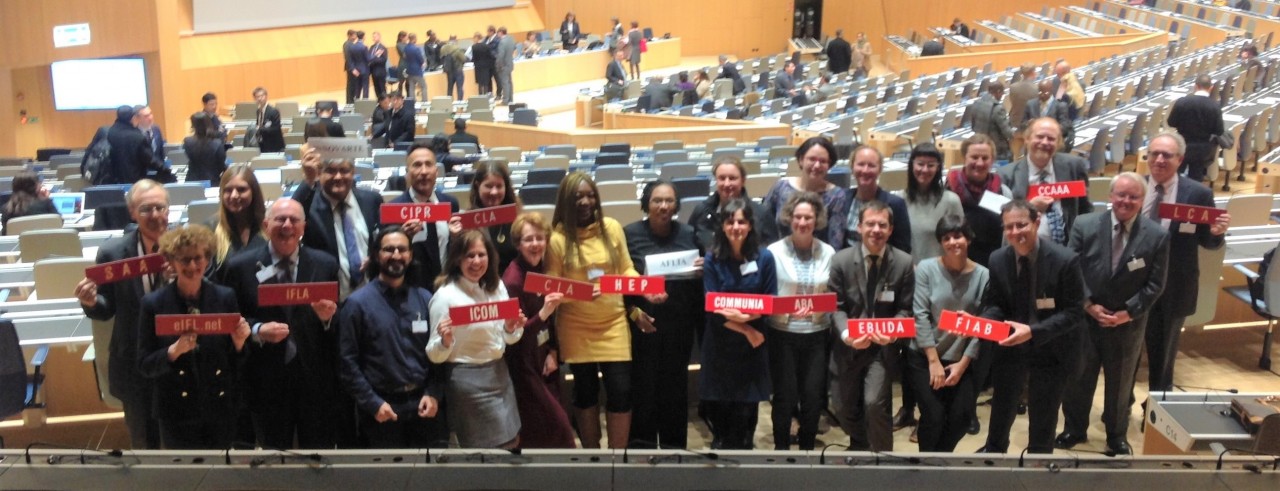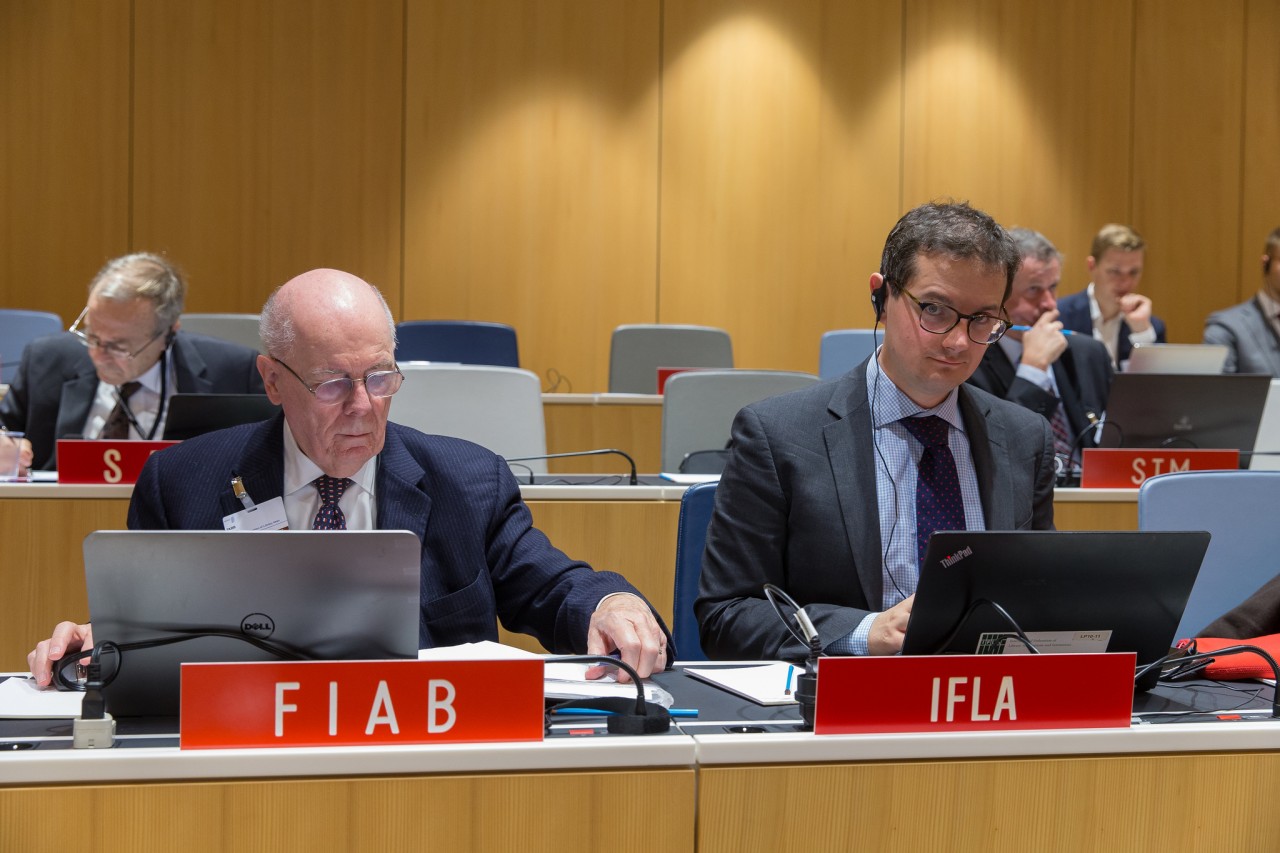Inaction is not an Option: Case Builds for Meaningful Action for Libraries at the World Intellectual Property Organisation
24 November 2017
IFLA attended the 35th session of WIPO’s Standing Committee on Copyright and Related Rights to make the case for the need of a minimum standard of exceptions and limitations to copyright for libraries, archives and museums. While a minority of states continue to question the need for action, the majority remain convinced that effective, universal access to information requires progress at the international level.
Once again, IFLA coordinated efforts with a group of partner organisations, notably the International Council of Archives (ICA), the International Council of Museums (ICOM), Electronic Information for Libraries (EIFL), the European Bureau of Library, Information and Documentation Associations (EBLIDA), and many others.

The main two highlights on the topic of exceptions and limitations for libraries and archives were the presentation of the update of the Crews report, and the outcome of the discussions around draft action plans on limitations and exceptions.
The 2017 update of the Crews report was presented by the professor himself on Wednesday morning, followed by discussions with Member States and Non-Governmental Organisations (NGOs).
Professor Crews opened his presentation by underlining the shared mission of libraries and archives: to preserve and provide access to information resources. In 2017, out of the 191 WIPO member states, 28 countries do not have any relevant exceptions to copyright (compared to 32 in 2015).
While this change is positive, the number of countries where libraries have no legal basis for work, or where the legal basis is out of date or simply not good enough remains too high. Business as usual is not a realistic way of achieving the change we want.
Professor Crews underlined the power of international examples, with the British legislation of 1956 and more recent European law often mirrored in other counties. By setting examples, WIPO itself could have a real influence on copyright regimes nationally.
Finally, professor Crews noted that there are several challenges ahead, such as the application of digital technologies or the expansion of library services. One of them is the growing cross-border exchange of information, that cannot be resolved at a national level.
The Committee also held useful discussions about an action plan for the coming years. This marks welcome progress, with all Members accepting the need for the work of SCCR to lead to positive results for libraries in both the short and longer term. The Chair will make revised proposals before the next meeting, with a strong hope of agreement.
Museums also played an important role in the discussions. With many libraries containing museums – and vice versa – it will be important to ensure that any work on museums is coordinated with that on libraries. Different approaches are both unnecessary and potentially harmful, as IFLA set out in a joint statement with the International Council on Museums and the International Council on Archives.

IFLA delivered several statements on the topic of exceptions and limitations for libraries and archives as well as on exceptions and limitations for educational and research purposes, and raised questions following several presentations.
See the statement and questions raised:
- General Statement on Exceptions and Limitations for Libraries and Archives
- Question on the Kenneth Crews presentation on Exceptions and Limitations to copyright for libraries and archives
- Question 1 on the Digital Environment Sudy by Guilda Rostama
- Question 2 on the Digital Environment Study by Guilda Rostama [in Spanish]
- Question on the presentation by Prof. Jane Ginsburg
To learn more about what IFLA is doing at WIPO, here’s our Webinar on Libraries, Copyright and the World Intellectual Property Organisation: